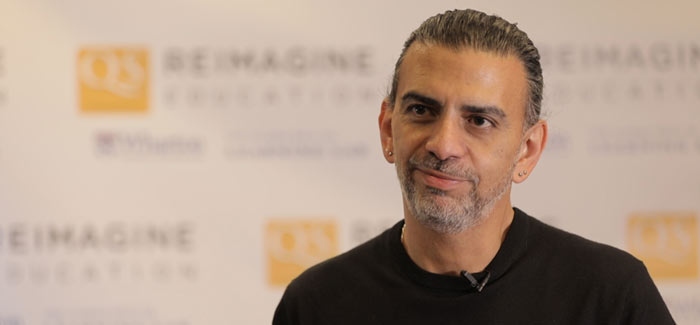Myths, legends and folklore tales – they all seem too far-removed from this fast-paced, metropolitan age we live in. Nevertheless, both the ancient Greeks and the Romans were certainly unmatched in their abilities to create extraordinary tales which continue to stand the test of time.
But which classical myths are most relevant to today’s world? Let’s delve into these fascinating classical myths to find out. And if you’re fascinated by classics and want to study it at university level, you can view the latest ranking for this subject here.
The myth of Phaethon can explain global warming
The narrative of this particular myth stands out more than any other when it comes to our most perilous modern issue: climate change and global warming. The myth of Phaeton, son of the god Helios, seems like an eerie prophecy of our current climate crisis, and bears a striking resemblance to reality.
The story goes that Phaeton, who had lived with his mother, swore to prove to his peers that his father was Helios, by driving the sun chariot across the sky – an act that even the gods were uncapable of. Helios decided to meet his father for the first time, who was so delighted to see him he promised to grant him his first wish. Phaeton didn’t hold back from demanding he be given the chance to drive the sun chariot across the sky for a day – a request his father scorned at first, but against his son’s stagnant stubbornness, eventually fulfilled anyway.
He advised him against all the risks and dangers, and most importantly, to never use the whip. Blinded by excessive pride and quick hold of the reins, Phaeton disobeyed his father, and used the whip anyway. This caused the horses to go wild, and he eventually lost control of the sun chariot, which inevitably caused havoc in the sky and the earth.
Ultimately, when news of Phaeton’s misdemeanor reached Helios’ brother Zeus, he angrily struck a lightning bolt into the sky, which hit Phaeton in the chest and sent him hurling down towards Earth and into the river Eridanus. The gods have managed to spare the earth from further disaster, and the planet’s slow road towards recovery had begun…so they said.
Some philosophers and theologians argue that today, just like Phaethon, humans have deluded themselves into believing that they're able to take advantage of their free will and control the 'reins' of nature, even if it means polluting the earth to such a point of destruction.
Hercules and his 12 Healing Labors teaches us to differentiate typical punishment from penance
In modern psychology, we’re often told that the best ways in which to communicate our negative feelings is to release them through more positive means such as creativity, exercise, and other therapeutic tasks which often involve hard work and intense physical exertion.
Similarly, when we do something wrong, most of us immediately feel guilty and try to make up for it. Because of this, it’s important to recognize the difference between punishment and penance: punishment essentially serves to impose a penalty on the offender for his or her offence, whilst penance is often inflicted upon ourselves, and bears a meaningful level of suffering and pain that should prove more effective in preventing the offender from committing the same wrongdoing again – something which is evident in the story of Hercules and his 12 Healing Labors.
Hercules was one of the sons of Zeus, and is often noted for his chivalrous character and strong, courageous demeanor. His real story, of course, is much darker than the Disney film - he certainly harbored a dark side, which later became evident when he went mad and murdered his own wife and children in their sleep.
Despite claims that this horrific decision was wholly fuelled by his arch-nemesis, the goddess Hera, the gods were livid and consequently sentenced Hercules to 12 years of almost impossible life-threatening tasks. Of course, from this, it’s clear that those in authority (the gods) didn’t take into consideration the likelihood that Hercules might’ve acted on insanity, and that, considering his respectful past, shouldn’t have been held this accountable for his terrible crime – another notion that’s commonly raised in criminal court cases today.
Nevertheless, Hercules was able to successfully complete every one of the impossibly gruelling labors, and was cleared of guilt and granted mortality by the god Apollo – sounds very fair to me.
The Olympic Games
Traditionally held once every four years, the modern Olympics Games were held for the first time back in 1986. Though it’s now known as an international multi-sport event, its origins lie in Ancient Greece, almost 3,000 years ago. But what does this have to do with mythology?
From the eighth century B.C. to the fourth century A.D., the ancient Olympics were, like today, held once every four years in Olympia, in the western Peloponnese peninsula in southern Greece. Legend has it that it was Hercules, son of Zeus, who founded the Games to celebrate his war victory against the city of Elis, and to pay homage to his father. The tradition went on to become extremely popular and a key event in ancient Greek society.
However, during the last decade of the fourth century (12 centuries later), the Roman emperor Theodosius I, who was a devout Christian, considered the Games to be a ‘pagan’ practice and put an end to them. The Games didn’t make their return until 1,500 years later, when in the 19th century, Baron Pierre Coubertin – following a visit to the ancient Olympic site – attended a meeting that would change the course of history: The Union des Sports Athlétiques in Paris. Here, he proposed the idea of reviving the Olympics as an international sports competition held every four years, and just two years later, the idea was approved, giving him the green light to establish the International Olympic Committee (IOC) – today’s governing body of the modern Olympic Games.
Want more content like this? Register for free site membership to get regular updates and your own personal content feed.







